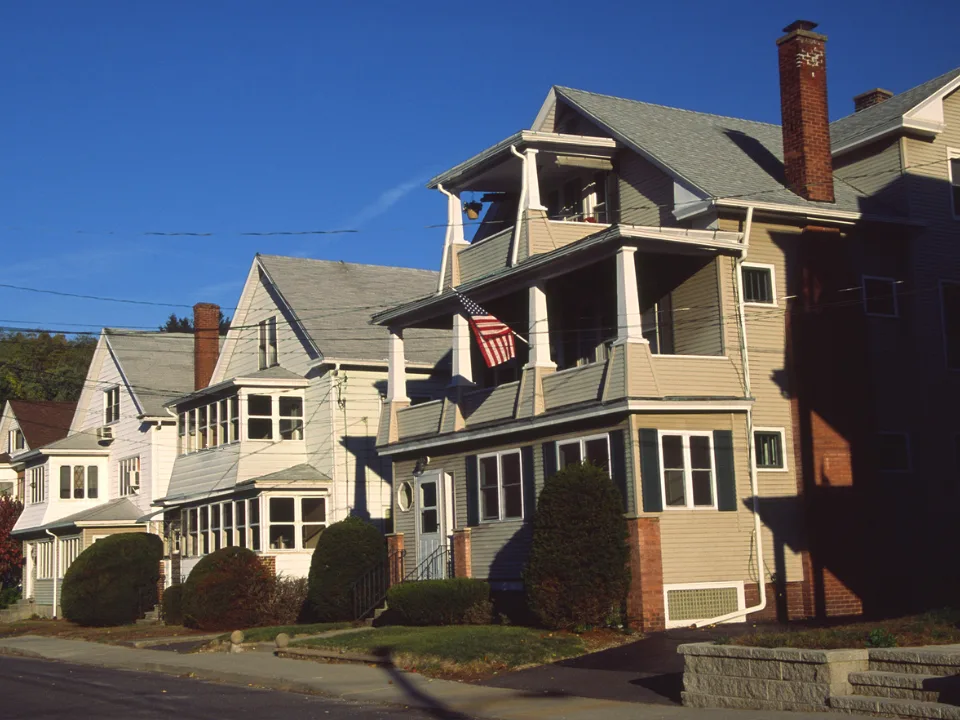- Massachusetts faces a severe housing shortage, with home prices up 73% since 2000, while household income has risen only 4% when adjusted for inflation.
- Governor Maura Healey’s plan includes zoning changes, regulatory reforms, and incentives for building on state-owned land and adding accessory dwelling units.
- Housing affordability is a key issue in Boston’s mayoral race, with candidates proposing different approaches, including tax breaks for landlords and rent control measures.
Massachusetts needs to add at least 222K new housing units by 2035 to keep pace with demand, according to a report from the state’s Executive Office of Housing and Livable Communities.
A persistent lack of new housing, combined with high interest rates and an already expensive cost of living, is driving more MA residents to relocate to more affordable states, per Bisnow.
Outpacing Income Growth
Since 2000, median home prices in Massachusetts have surged by 73%, while inflation-adjusted household incomes have risen by just 4%, making homeownership even more out of reach for many residents.
Boston and its surrounding areas are now the third most expensive metropolitan region in the nation, with a median single-family home price of $950K.
The rental market is also feeling the strain—MA ranks as the second most expensive state for two-bedroom apartment rentals, according to the National Low Income Housing Coalition.
Get Smarter about what matters in CRE
Stay ahead of trends in commercial real estate with CRE Daily – the free newsletter delivering everything you need to start your day in just 5-minutes
Boosting Housing Supply
Governor Maura Healey has introduced multiple initiatives to increase housing production and affordability, including:
- Zoning reforms and regulatory changes to streamline development and reduce construction costs.
- Expanding state-owned land use to support new housing projects.
- Encouraging accessory dwelling units (ADUs), also known as granny flats or in-law apartments, to add housing without large-scale development.
- The Affordable Homes Act, signed into law last year, allocates $2B for public housing and new construction.
One proposal that didn’t make it into the final Affordable Homes Act was a transfer tax of 0.5% to 2% on property sales above $1M, which would have helped fund affordable housing projects.
Key Housing Issues
The housing crisis has already become a major topic in Boston’s 2025 mayoral election. Josh Kraft, the son of New England Patriots owner Robert Kraft, recently launched his campaign against incumbent Mayor Michelle Wu.
- Kraft’s proposal: Tax breaks for landlords who agree to cap rent increases.
- Wu’s approach: Advocating for rent control and expanding affordable housing development.
Housing affordability is a top concern among voters, so both candidates are expected to make it a central issue in their campaigns before the November election.
What’s Next?
With the state’s housing supply needing to increase by 7% to meet demand, the coming years will be crucial for implementing policies that encourage development while keeping housing costs manageable.
As affordability remains a top concern for residents and businesses, MA leaders must act swiftly to prevent further population decline and economic strain.
















